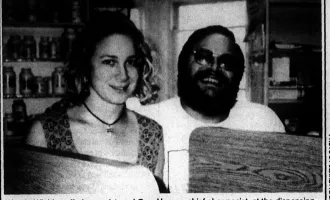Informational Interviews to Explore Unfamiliar Career Paths
Looking to explore a particular specialty or career path? Interested in learning about how other professionals have positioned themselves for nontraditional opportunities in your field? If so, conducting informational interviews can help you achieve those goals. An informational interview is just another name for a conversation you have with someone else to gain more information about their professional experience. The purpose of conducting informational interviews is to gather information about a career field. Informational interviews are beneficial because they provide you with an opportunity to explore career options, gain strategies to enter into and succeed in a particular field, and expand your network.
Here are suggested steps for conducting a successful informational interview.
Identify and Reach Out to Individuals to Interview:
The first step of an informational interview is to identify individuals who have an expertise in the area that you are interested in exploring. LinkedIn is an effective resource to identify these individuals because it allows you to search UCSF alums and other professionals in your field of interest. For example, joining the UCSF Alumni group on LinkedIn will give you access to a network of over 2,000 members, including current and past students, post-docs, fellows, and faculty of the University of California, San Francisco. If you have questions about how to create a LinkedIn profile, feel free to make an appointment with an OCPD counselor at (415) 476-4986.
Once you have identified individuals with whom you would like to interview, you can approach them via email, phone, or in person. In approaching them, provide a brief introduction of who you are (e.g., UCSF pharmacy student), information regarding how you obtained their name (e.g., referral, LinkedIn), the purpose of the meeting (e.g., to explore a career in regulatory affairs), and the length of time you would like to meet (informational interviews are typically 30-60 minutes in length). If you do not receive a response, you can follow up within 1-2 weeks of your request. The Office of Career and Professional Development (OCPD) website (http://career.ucsf.edu/) provides sample language to use for informational interview requests.
Prepare for the Informational Interview:
Once you set up an informational interview, research the individual with whom you will be interviewing. You can do so by reviewing their profile on LinkedIn and bio on their organization’s website to get a sense of their academic training, career path, and current job duties.
Most of the informational interview will be focused on the individual being interviewed. However, be prepared to answer questions about your background and your career interests. Also, create a list of questions to ask during the informational interview. Depending on the purpose of the informational interview, questions generally revolve around four areas: 1) the present (individual’s day-to-day responsibilities), 2) the past (individual’s career trajectory), 3) the future (future trends in the field), and 4) advice (resources that can help you gain more information about the field).
For example, below are questions a pharmacy student interested in a career in regulatory affairs could ask during an informational interview:
- Present: What is a typical day for a regulatory pharmacist?
- Past: How did you enter into this career path?
- Future: What are some future career paths for someone in your position 5-10 years down the road?
- Advice: Can you recommend anyone else who might be willing to talk to me about their career path?
Never ask for a job during an informational interview because this question will put the person that you are interviewing in an awkward position. Remember, an informational interview is not a job interview. Rather, it is opportunity to gather information.
By the time you are done with an informational interview, you should have an understanding of the person’s job responsibilities and background, a better sense of future career opportunities in a particular career field, and information about resources to help you further investigate a particular career path.
Show Thanks…and Follow Up:
Do not forget to send a thank you note after an informational interview. A thank you note should be a short statement expressing appreciation for the individual’s time and how you would like to use the information you gained from the informational interview. Visit the OCPD website (http://career.ucsf.edu/) to view sample thank you notes.
The last step is to stay in touch by sending updates to the individual you interviewed to highlight how their advice had an impact on your career development. For example, you can let them know that their job search strategies helped you succeed in an interview or that their advice helped you clarify your career goals. A benefit of staying in touch is that they may think of you when they learn about a new opportunity in their field.
If you would like help on any aspect of the informational interview process including how to identify individuals to interview and questions to ask, schedule an appointment with an OCPD counselor at (415) 476-4986.


